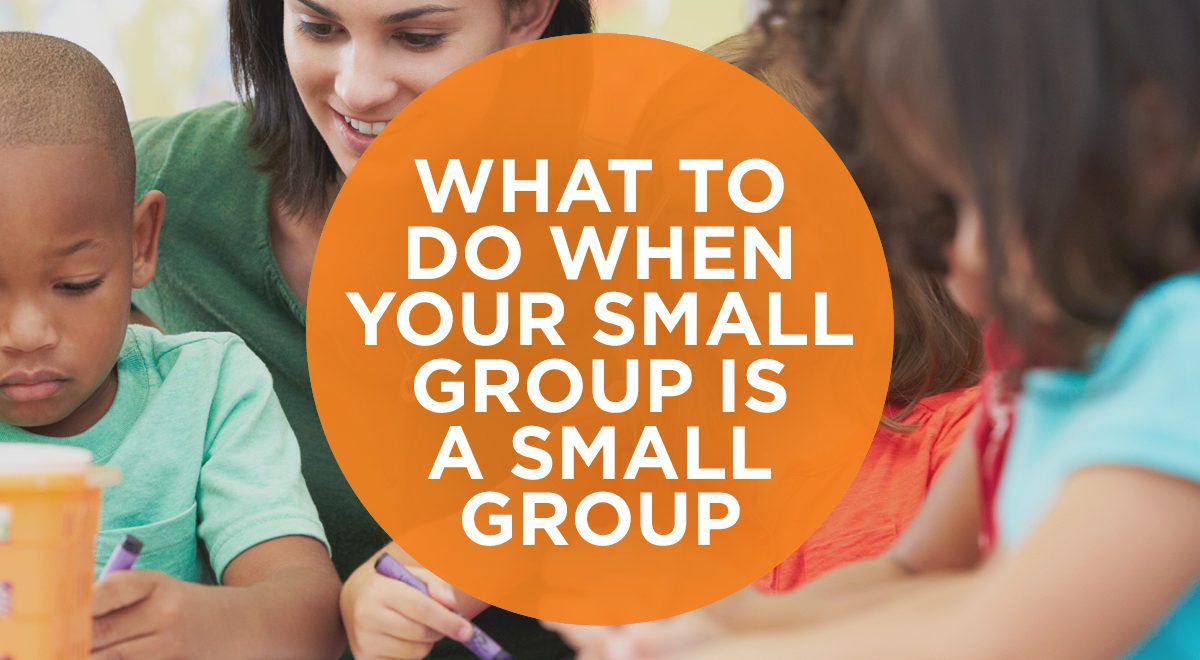I have had a great opportunity to work in a variety of churches. Some churches were small, some churches were large, but no matter the size of the church, I love small group teaching. I love the cozy environment of a small group. I love the almost individualized training that can happen when sometimes you are one-on-one. What happens though when only one or two kids show up? What are you to do when your small group is a SMALL group? Here are a few ways to adapt when making your plans.
- If you use a prepared curriculum, think about the possibility of a small group when you are planning. If an activity has you breaking into groups of six … and you only have one child … how will you still accomplish the goal with only one child? How can you adapt the plan so that one child succeeds?
- Group games might still work. If your curriculum gives you instructions to play a group game, for instance, consider the goal of the game. Is there a team relay? Is there an over-under sort of game? Remember, you count too, so get in there and play that game if you have to. Adapt the game so it can be completed by a few even if each person participates multiple times.
- Large group demonstrations could be difficult. What to do if your curriculum suggests having 12 participants each take one card and find someone else in the room with the same card? You can quickly turn this activity into a memory matching game for a small group to play at a table.
- Involved craft activities. While most craft activities are fairly self-directed, you may run into an activity that requires the participation of more than one person. Use your skills and those of other leaders in your room to accent the activity so kids can experience success.
No matter what your situation, you can think through these suggestions beforehand and prepare for the eventual SMALL group of kids. The key, obviously, is to prepare. Be ready when you arrive to meet the needs of whatever group you have. Also, remember that you do count too. Kids love learning alongside adults and when you participate in an activity it engages parts of their brains that might not have been engaged with purely peer engagement. Never forget that God placed you where you are so you can guide boys and girls to know Him. You can do that no matter the size of the group you are teaching.
 Tim Pollard is passionate about helping kids dig deep into Scripture, which he pursues through his daily work as leader of the Explore the Bible: Kids team. Tim lives with his wife and daughters in Mount Juliet, TN.
Tim Pollard is passionate about helping kids dig deep into Scripture, which he pursues through his daily work as leader of the Explore the Bible: Kids team. Tim lives with his wife and daughters in Mount Juliet, TN.


 »
»